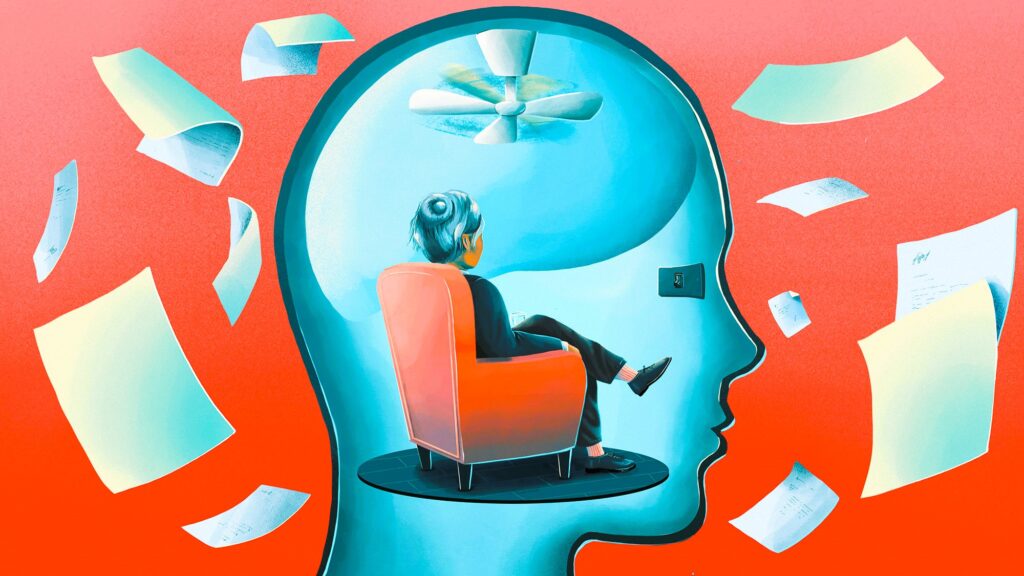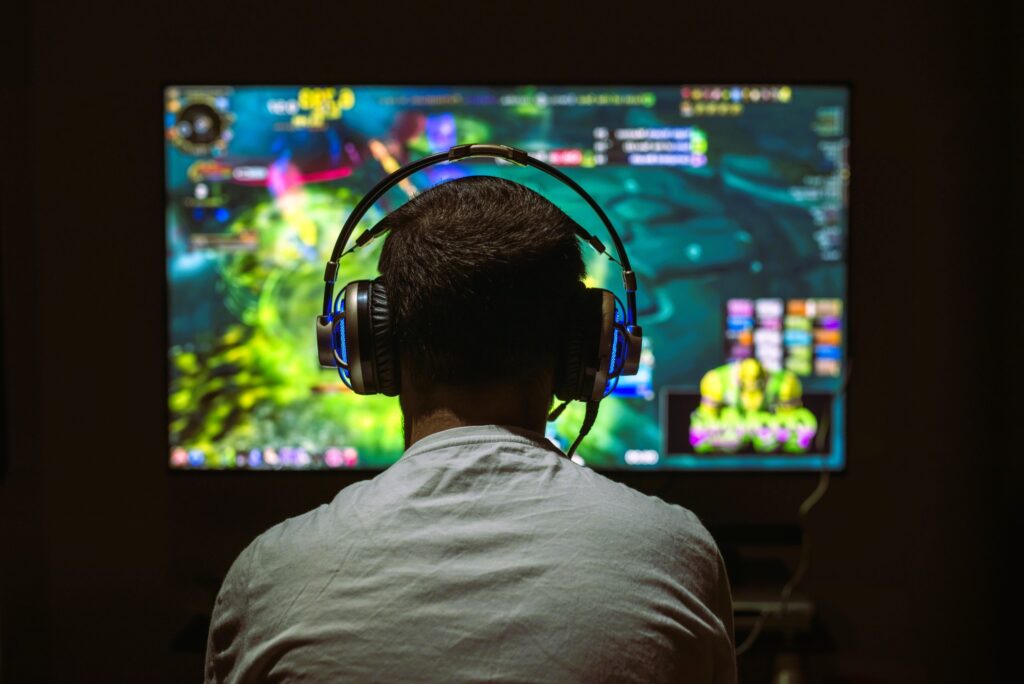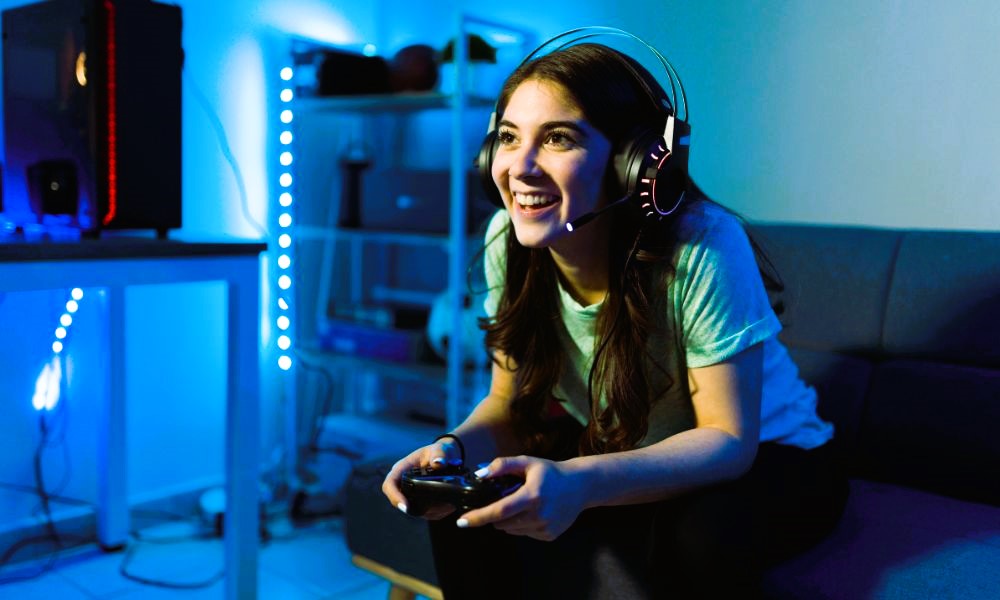Gaming, especially in competitive environments, often puts players in situations that demand focus, skill, and mental resilience. Whether you’re fighting for a win in an esports tournament or facing off in a casual match with friends, high-pressure moments can take a toll on even the most experienced players. The psychology of winning is more than just about having the best strategy or fast reflexes; it involves managing stress, keeping a clear head, and maintaining emotional control.
In this article, we will explore the psychological techniques that can help gamers stay calm under pressure and achieve their best performance. By understanding how stress impacts the mind and how to develop mental resilience, players can improve their gaming experience and unlock new levels of performance.
Understanding Stress in Gaming
To manage stress effectively, it’s important first to understand how stress works. Stress, in psychological terms, is a response to a perceived challenge or threat. This is known as the “fight or flight” response, where your body prepares to take action by releasing hormones such as adrenaline and cortisol. In gaming, these physiological changes can affect your performance in both positive and negative ways.
In high-stress gaming situations, such as during the final moments of a match or when you’re on the verge of a loss, these changes can create a sense of urgency. The heart rate increases, muscles tense, and the mind races. For some players, this rush of energy is a motivator, pushing them to perform better. However, for others, the flood of stress can lead to anxiety, panic, and a decline in reaction time.
The key is learning to manage these physiological responses. This can be achieved through mindfulness, breathing exercises, and by developing a positive mental attitude that sees challenges as opportunities rather than threats.
Techniques for Staying Calm in High-Stress Situations

- Mindfulness and Deep Breathing
One of the most effective techniques for staying calm under pressure is practicing mindfulness. Mindfulness involves paying attention to the present moment without judgment. In gaming, this means focusing solely on the task at hand and not letting thoughts of past mistakes or future outcomes distract you. Read our article on Nutrients That Help Improve Concentration and Attention During Gaming.
Deep breathing exercises are a common mindfulness practice that can help calm the nervous system. When you feel the stress building up, try to take slow, deep breaths: inhale for four seconds, hold for four seconds, then exhale for four seconds. This simple exercise helps slow down the heart rate and signals to your brain that you are not in immediate danger, which can reduce anxiety.
- Positive Self-Talk
The way you talk to yourself during high-stress moments can make a huge difference in your performance. Negative self-talk, such as saying “I’m going to lose” or “I can’t do this,” increases feelings of stress and can lead to a loss of confidence. On the other hand, positive self-talk reinforces belief in your skills and reminds you of your strengths.
A good mantra to use during tense moments could be something like, “I am prepared for this,” or “Stay focused, one step at a time.” These affirmations can act as psychological anchors, helping you stay grounded and focused on the task at hand.
- Visualization and Mental Rehearsal
Visualization is a technique commonly used by athletes, and it can be equally effective for gamers. Visualization involves mentally rehearsing actions, strategies, and responses to certain scenarios before they happen. By visualizing yourself succeeding in a high-pressure situation, you can condition your brain to stay calm when it actually occurs.
For example, if you’re about to enter the final round of a competitive game, close your eyes for a moment and imagine yourself handling the situation with composure and skill. Picture yourself staying focused, making quick decisions, and ultimately achieving success. This mental rehearsal not only boosts your confidence but also prepares you to manage stress more effectively in real time.
- Focus on the Process, Not the Outcome
In high-stress gaming situations, it’s easy to become fixated on the outcome—whether you win or lose. However, focusing too much on the result can increase pressure and make it more difficult to perform at your best. Instead, focus on the process of playing: your strategy, your execution, and your decision-making.
By shifting your focus to the process, you create a sense of control. Winning or losing becomes secondary to the effort you put into playing well. This mindset allows you to remain calm because you’re not overwhelmed by the pressure of needing to win.
- Physical Preparation
A lot of the stress you experience during gaming can be alleviated by taking care of your body. Physical preparation isn’t just about being physically fit—it’s about ensuring that your body is in the optimal condition for gaming. This includes things like maintaining good posture, staying hydrated, and taking regular breaks to prevent mental fatigue.
Ergonomics play an important role in maintaining physical and mental well-being during long gaming sessions. Set up your gaming station to ensure that you’re sitting comfortably with your back straight and your eyes at a proper distance from the screen. Taking frequent breaks, stretching, and staying hydrated will help keep your mind sharp and your body relaxed.
The Role of Mental Resilience in Gaming

Mental resilience is the ability to bounce back from setbacks and maintain composure under pressure. Just like physical strength, mental resilience can be trained and developed over time. The more you practice these techniques, the more natural they will become in high-stress situations.
Building mental resilience involves learning how to manage emotions, stay focused on the task at hand, and recover quickly from mistakes. Resilient gamers are able to stay calm, focus on their strategy, and adapt to changing circumstances, all of which are crucial for success in competitive gaming.
The psychology of winning is not just about raw skill or reaction time—it’s about staying calm and composed in high-stress situations. By practicing mindfulness, positive self-talk, visualization, and focusing on the process, gamers can manage their stress levels and improve their overall performance. With time, mental resilience becomes a powerful tool for navigating the challenges that come with competitive gaming.
If you’re interested in learning more about the science of stress and how it affects performance, you can check out resources like Wikipedia’s article on Stress.
By incorporating these strategies into your gaming routine, you’ll not only improve your chances of winning but also enhance your overall gaming experience, turning stressful moments into opportunities for growth and success.



